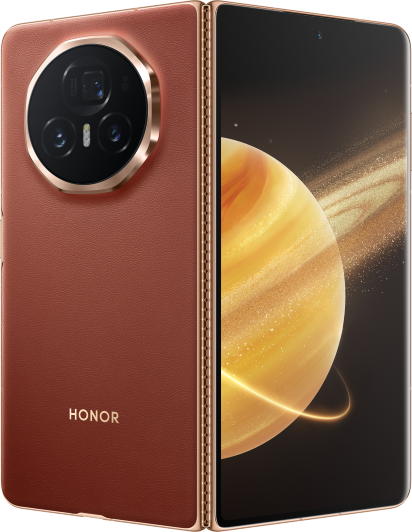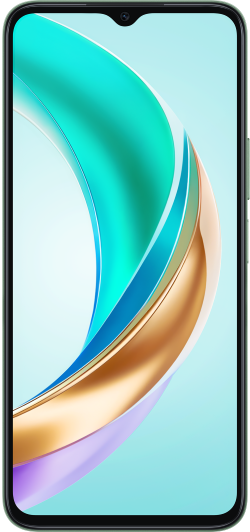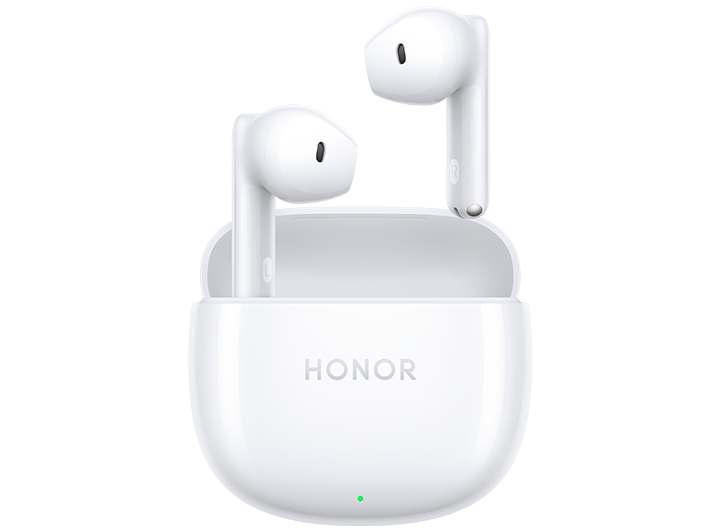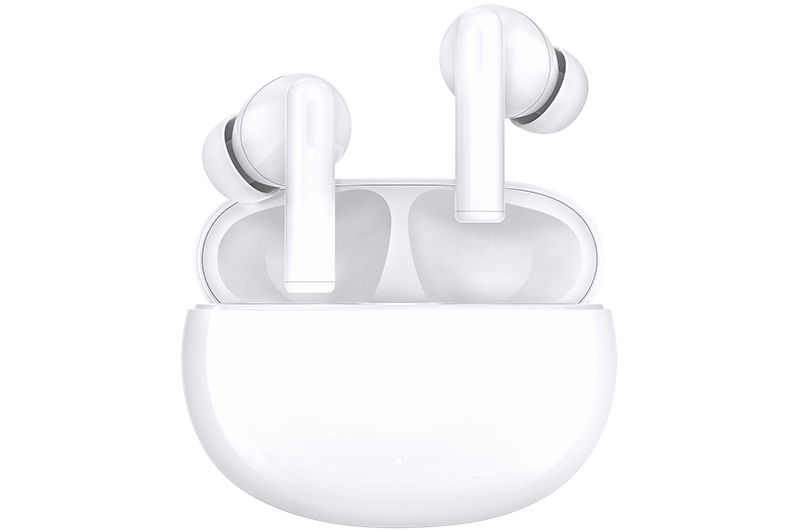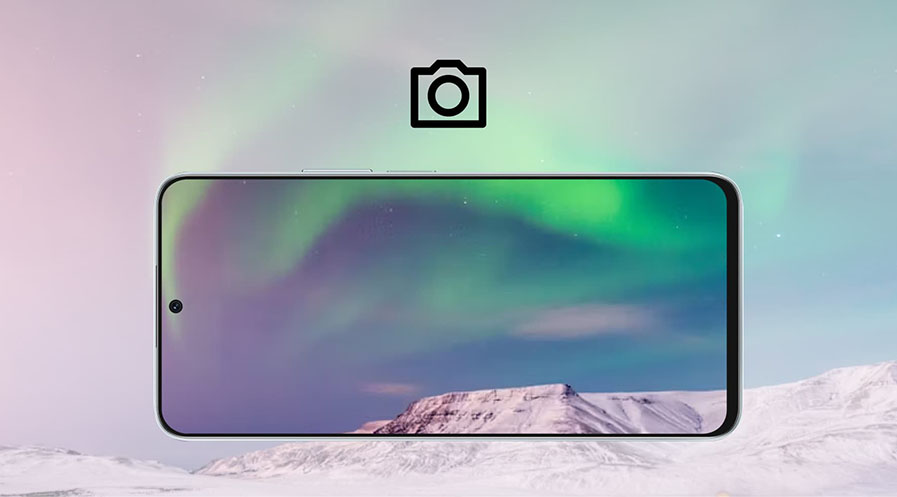TOP

我的荣耀 开启荣耀之旅
To log in to your account, you must first agree to the HONOR PLATFORM TERMS OF USE. If you do not agree, you may only browse the site as a guest.
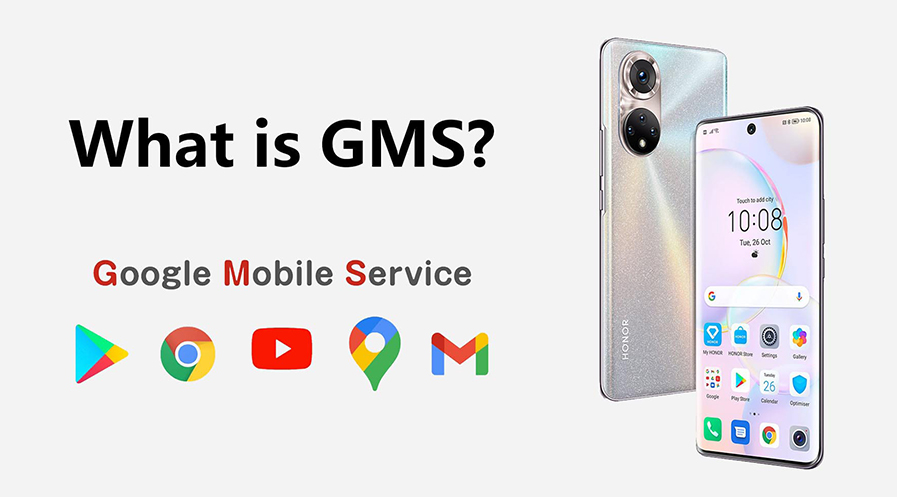
What Is GMS? All You Should Know about GMS
If you use Android, you’ve probably encountered the term GMS or Google Mobile Services at some point, but what does it really mean? In this blog, we'll delve into what is GMS and how it significantly shapes your Android experience. We'll cover everything from the critical benefits of having GMS on your device to the potential effects and limitations when it's absent.
By the end of this discussion, you'll have a thorough understanding of what GMS means and how it impacts your daily device interactions. Let's dive in and unravel the multifaceted role of GMS in the Android ecosystem!
What Is Google Mobile Services (GMS)?
Google Mobile Services (GMS) is a collection of Google applications and APIs that come pre-installed on certified Android devices. GMS serves as the backbone for many essential functionalities on Android smartphones and tablets, ensuring that users have immediate access to Google’s core services. This suite includes more than just the Google Play Store, which is central for downloading and updating various apps. It also encompasses key applications such as Google Search, which provides integrated search capabilities across the device, and Google Chrome for web browsing.
Additionally, GMS includes critical communication apps like Gmail for email, Google Maps for navigation, and Google Drive for cloud storage. These apps are complemented by the Google Play Services framework, which updates in the background to support all these applications with the latest features and security updates. Together, these components form a fundamental part of the user experience on Android devices, enhancing functionality and integration across the platform.
What Devices Integrate GMS?
Google Mobile Services (GMS) is integrated into a wide array of devices that use the Android operating system. To have GMS, devices must pass Google’s certification process, which ensures they adhere to Google’s standards for security and performance. This certification is crucial as it not only allows the device to use GMS but also reassures users of its quality and capability.
Primarily, you’ll find GMS on most mainstream Android smartphones and tablets from well-known manufacturers like HONOR. Additionally, GMS is found on a variety of other smart devices such as wearable technology, smart TVs, and even some cars equipped with Android Auto.
However, not all Android devices come with GMS. Some manufacturers, especially those targeting specific regional markets or lower-cost sectors, may opt to use Android Open Source Project (AOSP) versions without GMS. These devices often utilize alternative frameworks and app stores, which can significantly alter the user experience.
Benefits of GMS for Android Users
Now we know what are Google Mobile Services and its widely applicable devices. Let’s explore some major benefits of GMS for Android users:
● Access to Google Play Store: GMS provides seamless access to the Google Play Store, which hosts millions of apps and games. This ensures users have a vast selection of software to enhance their device's functionality and entertainment options.
● Regular Updates and Security Patches: With GMS, Google Play Services automatically updates in the background, providing users with the latest features, bug fixes, and security patches. This helps maintain the device’s performance and security.
● Integrated Google Apps: Users benefit from pre-installed Google apps like Gmail, Google Maps, Google Drive, and Google Photos, which are optimized for Android and offer a cohesive experience across services.
● Enhanced App Compatibility: Apps designed to work with GMS can leverage Google’s APIs for better performance and integration, ensuring a smoother experience and more reliable functionality.
● Google Assistant Integration: GMS includes Google Assistant, which offers voice-controlled assistance for managing tasks, setting reminders, and controlling smart home devices, making daily activities more convenient.
Can You Use Android without Google Services?
Yes, it is possible to use Android without Google services, though there are important considerations.
Most mainstream Android devices including HONOR Phones come with Google Mobile Services (GMS) pre-installed, but some manufacturers, Amazon, offer devices without GMS. Additionally, custom ROMs, such as LineageOS, allow users to install Android without Google apps.
However, the absence of GMS affects app availability and functionality. Many popular apps rely on Google services, which may limit their performance or accessibility. Users can turn to alternative app stores like F-Droid and Aurora Store, or sideload APK files, but this may require more technical knowledge.
Effects of Missing GMS on Android Devices
As we discussed earlier, the absence of Google Mobile Services (GMS) can significantly impact the functionality and user experience of Android devices. Here are some of the key effects of missing GMS:
● Limited App Availability: Many popular apps are only available through the Google Play Store and may not work without GMS.
● Reduced Functionality: Some apps rely on GMS APIs for features like push notifications, location services, and cloud sync.
● No Access to Google Apps: Core Google apps like Gmail, Maps, YouTube, and Chrome are unavailable.
● Lack of Automatic Updates: GMS provides system updates and security patches through the Play Store.
● Missing Google Account Integration: Features like contact/calendar sync and saved passwords are unavailable.
● Potential Security Risks: Google Play Protect, which scans for malicious apps, is not present.
Can You Install Google Services by Yourself?
While it's possible to install Google Mobile Services (GMS) on some devices that don't come with it pre-installed, the process can be complex and varies depending on the device. However, if you do really need to do it yourself, here's how to install Google Mobile Services:
Install a Third-Party App Store: Download and install an app store like Aurora Store from a trusted source. This lets you download Google apps without needing the Play Store.
Install Google Play Services: Look for Google Play Services within the third-party store and download it. This framework allows Google apps to run smoothly on your device.
Install Google Play Store: Once Google Play Services are installed, search for the Google Play Store and install it.
Install Google Apps: Finally, download other Google apps (e.g., Gmail, YouTube) through the newly installed Play Store.
Remember to ensure your device allows installation from unknown sources in your security settings for this process to work smoothly. However, for most users, it's still the most reliable practice to purchase a device that comes with GMS pre-installed to avoid uncertified apps and app incompatibility on your phones.
Conclusion
Now you know what is GMS. From our exploration, it's evident that Google Mobile Services (GMS) is immensely beneficial for enhancing the Android experience. It grants unrestricted access to essential apps, seamless integration across services, and reliable updates directly from Google, ensuring that your device stays current and secure.
If you are considering switching your smartphone, paying attention to whether it includes GMS should be a top priority. Opting for GMS-equipped devices, such as the latest HONOR phones, means you'll enjoy a comprehensive suite of services that enhance your user experience, maintain security standards, and support a wide range of applications, ensuring relevance and high performance for years to come.
FAQs
How is GMS different from non-GMS Android services?
Google Mobile Services (GMS) differ from non-GMS Android services primarily in the availability of Google’s proprietary apps and APIs. GMS includes essential services like Google Play Store, Google Maps, Gmail, and YouTube, which are not available in non-GMS environments. Non-GMS devices often rely on alternative app stores and must use third-party apps to replace Google functionalities.
What does the GMS do?
Google Mobile Services (GMS) is a collection of Google applications and APIs that help enhance the functionality of Android devices. GMS serves as a conduit for updating Google apps and services directly through the Google Play Store. It facilitates the integration of Google’s core apps like Google Search, Maps, and Chrome, providing a seamless user experience. Additionally, GMS supports various device capabilities such as push notifications via Google Cloud Messaging, security features through Google Play Protect, and user synchronization across devices with Google account integration.
How does GMS enhance the Android user experience?
The GMS enhances Android user experience primarily in the following ways:
Seamless App Integration: Offers tight integration with essential Google apps like Maps, Gmail, and Drive, ensuring they work flawlessly with Android features.
Access to the Latest Apps and Games: Provides access to millions of apps and games through the Google Play Store, including frequent updates and new releases.
Enhanced Security: Google Play Protect continuously scans apps for malware before and after installation, safeguarding devices against malicious software.
Synchronization Across Devices: Allows synchronization of contacts, app data, and settings across multiple Android devices using a single Google account.
Better User Interface: Google’s continuous improvements to the user interface and experience ensure smooth and intuitive navigation across Android devices.
Source: HONOR Club

Subscribe To Our Newsletter - Discover HONOR
Please accept HONOR Platform Privacy Statement.
By entering your WhatsApp number, you agree to receive commercial information on WhatsApp about HONOR products, events, promotions and services. For more details, please see our privacy policy.
Please accept HONOR Platform Privacy Statement.
I agree to receive the latest offers and information on HONOR products, events and services through third-party platforms (Facebook, Google). I may withdraw my consent at any time as indicated in the Privacy Statement.
Contact
Mon-Sat: 09:00 – 18:00. (Except on national holidays).
Third Floor, 136 George St., London, W1H 5LD, United Kingdom.
Copyright © HONOR 2017-2025. All rights reserved.
We use cookies and similar technologies to make our website work efficiently, as well as to analyze our website traffic and for advertising purposes.
By clicking on "Accept all cookies" you allow the storage of cookies on your device. For more information, take a look at our Cookie Policy.
Functional cookies are used to improve functionality and personalization, such as when playing videos or during live chats.
Analytical cookies provide information on how this site is used. This improves the user experience. The data collected is aggregated and made anonymous.
Advertising cookies provide information about user interactions with HONOR content. This helps us better understand the effectiveness of the content of our emails and our website.








